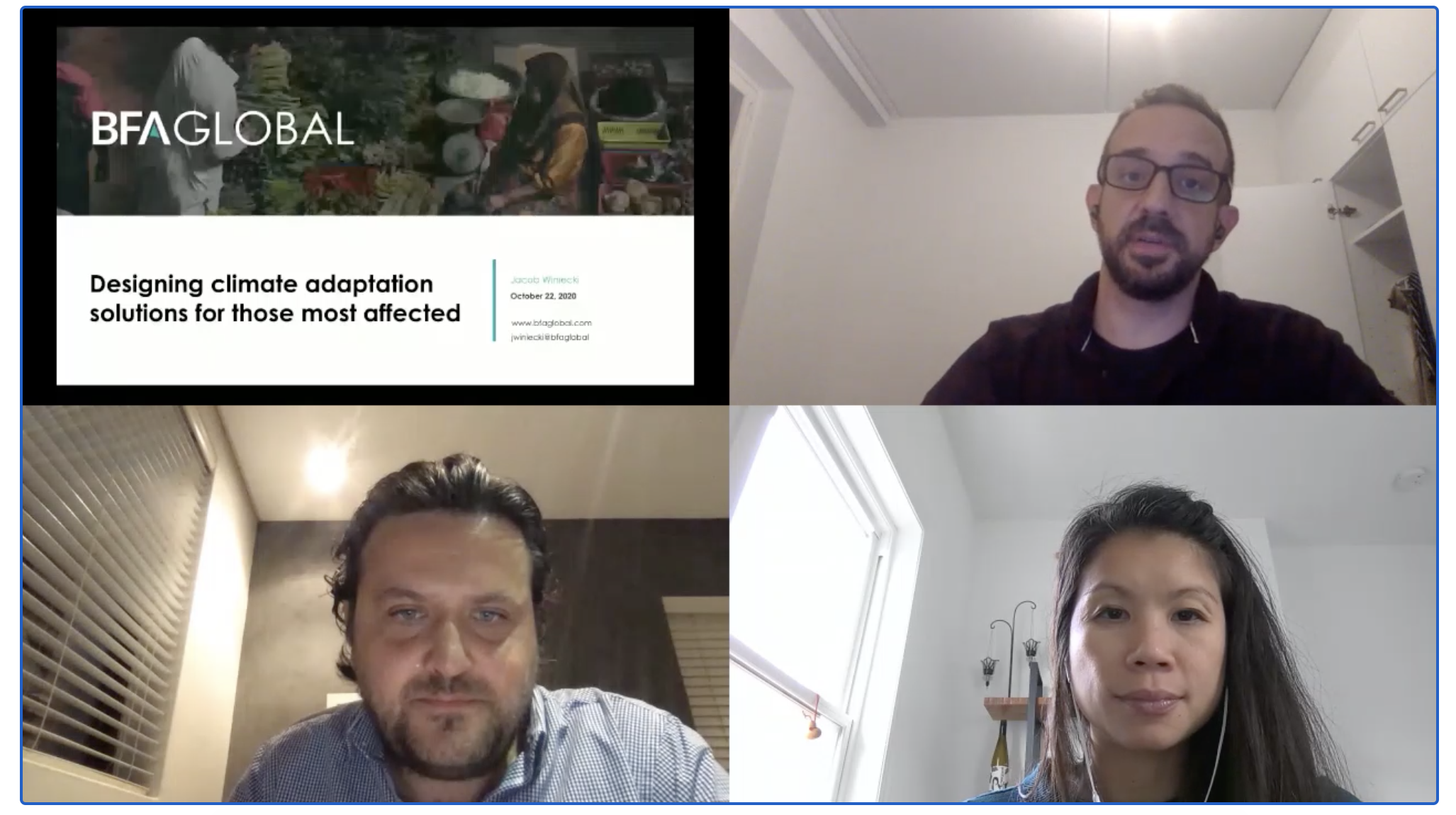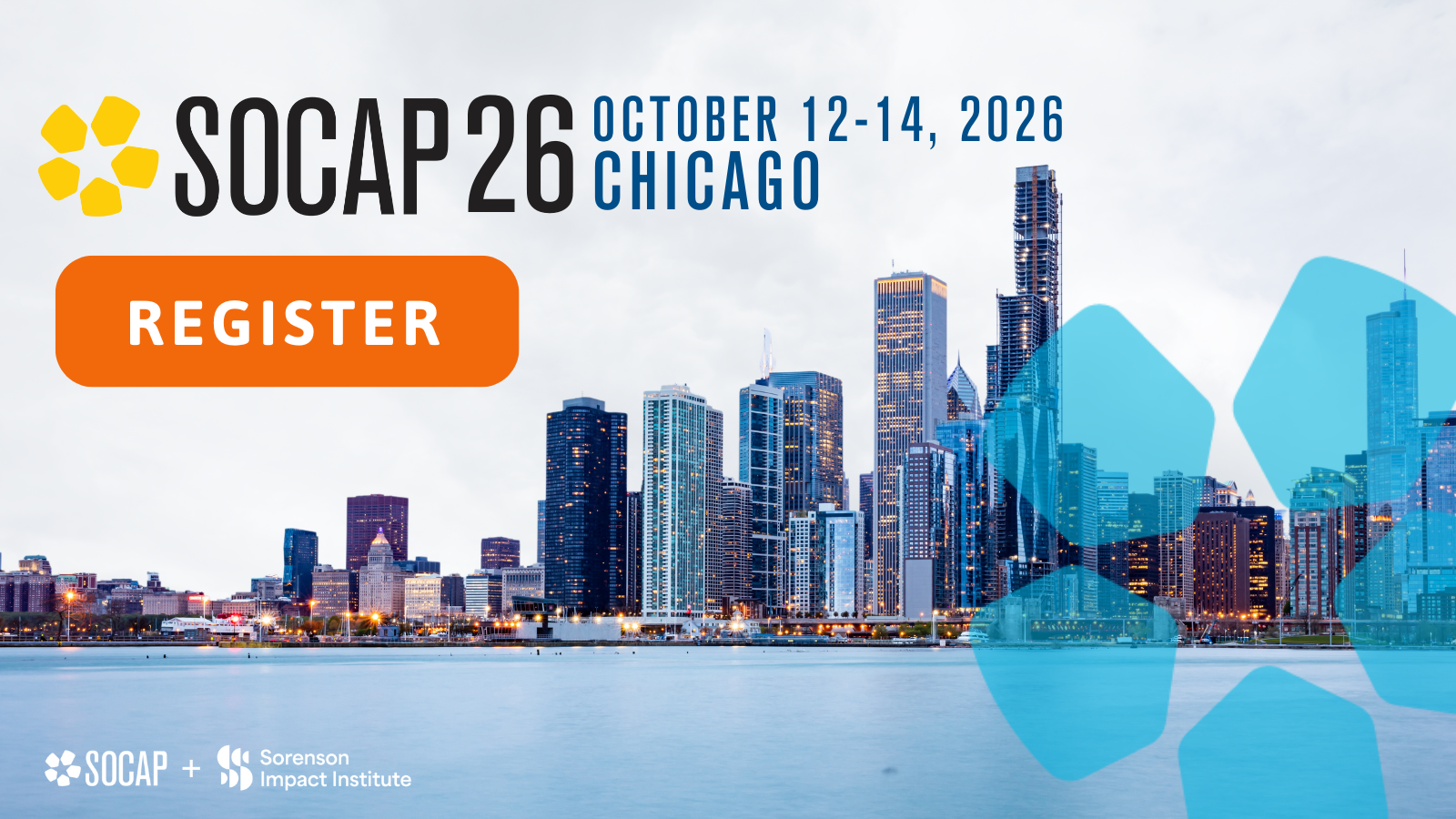Bringing Innovations to Farmer and Fisher Communities in Africa, a SOCAP20 Virtual Session
Globally, innovation in and funding for solutions designed to fight the effects of climate change remain concentrated in developed markets. Yet it is populations in Africa – in particular farmer and fisher communities – who will bear the brunt of the crisis, and remain the backbone of the wider economy. A series of Lightning Bolts bring together the funding community and experts in designing climate adaptation solutions to discuss how we can bring innovations to these communities.
As one Lightning Bolt presenter, Jacob Winiecki, Principal Consultant at BFA Global, shared, “Africa has contributed an estimated 3% of total climate change emissions. But, farmers and fishers in Africa provide the most of the food, economic value, and employment on the continent. The groups are vulnerable because they are dependent on the environment and have lower socioeconomic status.”
The three Lightning Bolt speakers each presented the work they are involved in bringing climate adaptation and resilience to these vulnerable groups in Africa:
Jacob Winiecki: Principal Consultant at BFA Global
Karina Wong: Senior Executive at Small Foundation
Serge Raemaekers: Founder at Abalobi
Some highlights from the conversation include understanding why there has not been a big funding or development push in climate adaptation and resilience strategies for farmer and fisher communities across the African continent. “While mitigation efforts are critically important, this really leaves the most vulnerable people behind,” said Winieki. “We see a real critical need to support communities in emerging markets in both building resilience to climate shocks and ability to adapt to long-run climate change.” To date, Winiecki continued, funding in climate adaptation and resilience solutions have not been nearly as prevalent as funding for climate mitigation.
Serge Raemaekers focused on climate resilience with a greater emphasis on social resilience, especially for small-scale fishers, who are responsible for the majority of the world’s global catch. “These fisheries are a major contributor to food and livelihoods, yet many small-scale fishers are left out of sustainable development climate initiatives and are most severely and disproportionately impacted by climate change impacts, both ecologically and socially,” Raemaekers said. He went on to describe the project he is working on to provide simple technology solutions to allow fishers to gather and see data about species and climate impacts, with the goal to help them build climate resilient operations.
Karina Wong shared what, as a funder, are seen as the challenges in funding in this space but still important to have climate adaptation. “Farming is the future in Africa. More than 70% of people are employed in agriculture in the continent. … Extreme climate events are deeply impacting them, and they end up being the least prepared,” she said. “How do we, as a funder, reach them? The big piece is around building an ecosystem … and we need so many different types of capital, … and the funders are really not talking to each other along the capital continuum.” Wong dove into opportunities to address challenges to investing in climate adaption solutions, including the connections between all of the players along the capital continuum, the long-term ecosystem-building and business-building reality, and the slow start to financial returns in this space.






